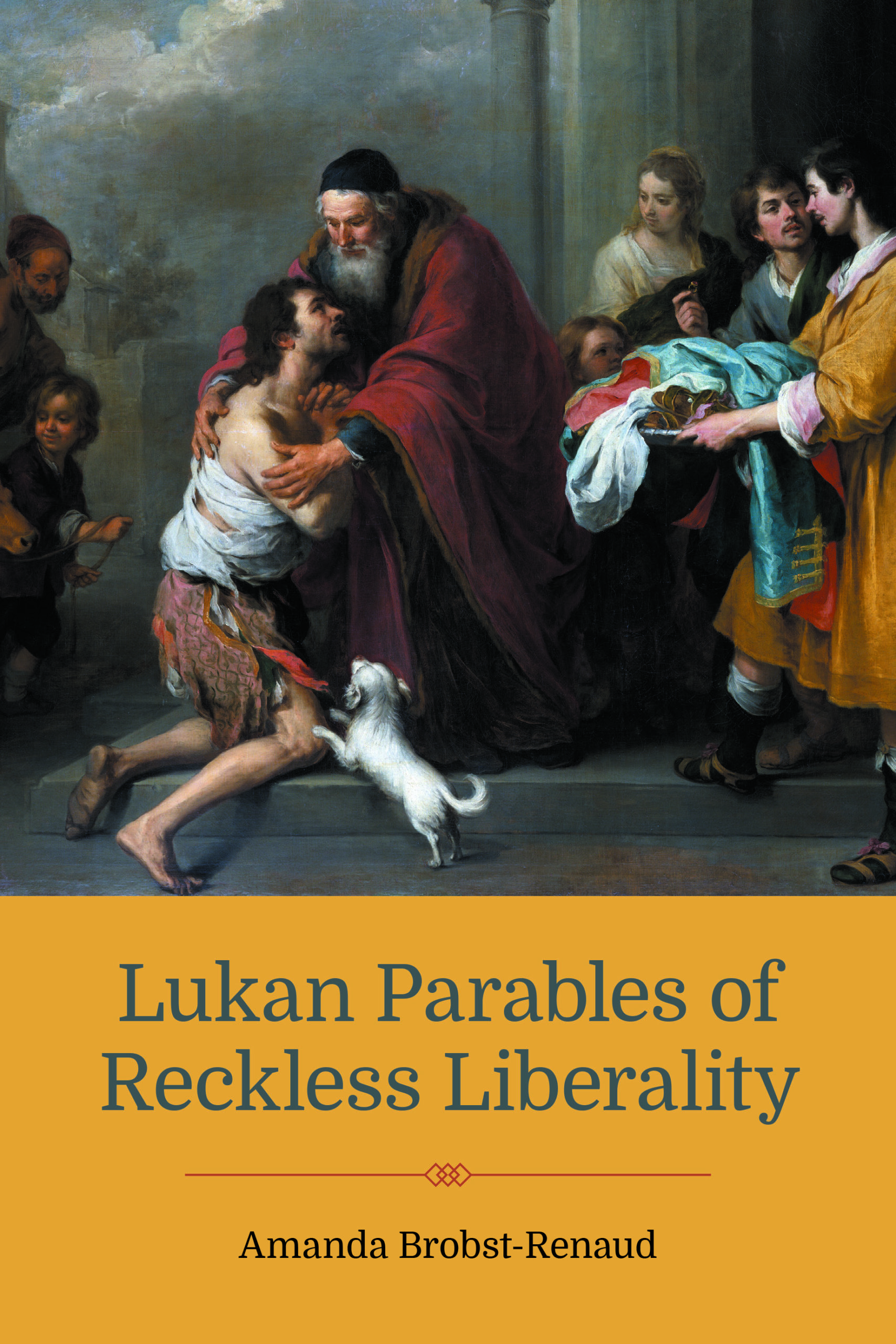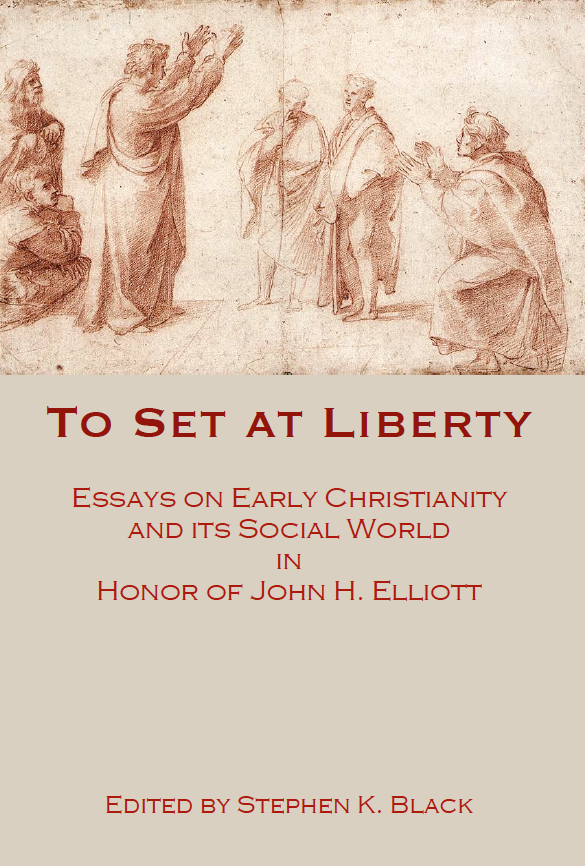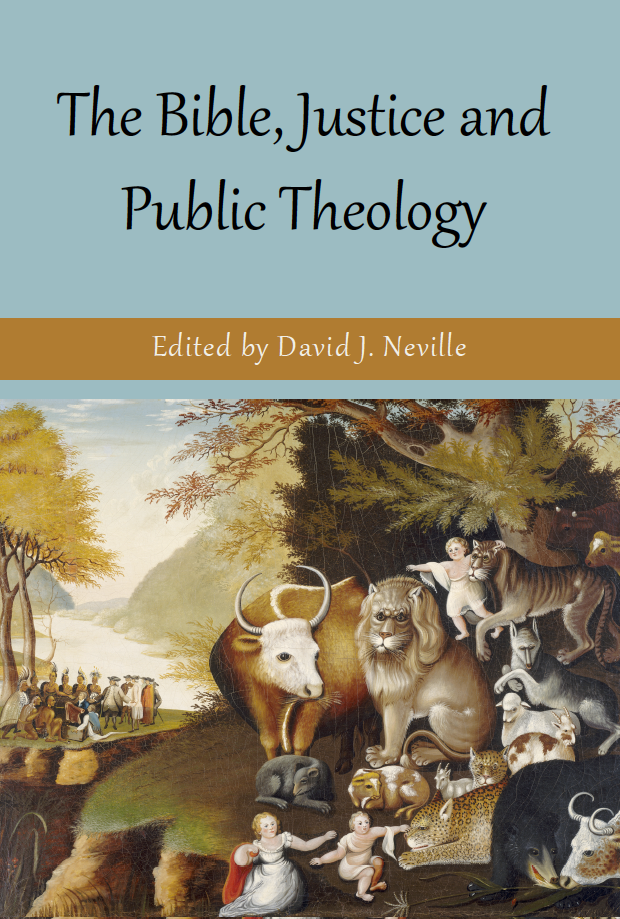Lukan Parables of Reckless Liberality
Published: Apr 2021
£60.00
From among the many parables in Luke, Amanda Brobst-Renaud chooses three, which she names 'parables of reckless liberality': the Prodigal Son, the Shrewd Steward, and the Rich Man and Lazarus. Picking up on the supposed slur that Jesus 'welcomes sinners and dines with them', Luke encourages his audience in these parables from chaps. 15 —16 in a practice of giving excessively to the wrong people at inappropriate times (flouting Aristotle's advice on liberality in the Nicomachean Ethics).
Each parable in this volume presents at least one of its characters in crisis; these situations demand a decisive response. We all know the crises faced by the younger son, the steward, and the rich man, but the crises confronting the elder son and the rich man's brothers are equally dire, starkly sketched by the open questions left hanging at the end of each parable. Will the elder son join the party, celebrating his once-dead younger brother? Will the steward secure an eternal welcome? Will the rich man's brothers heed Moses and the prophets, or will they meet the same fate as the rich man?
In each case, reckless liberality answers the characters' quandaries and demands of Luke's auditors that they choose between emulating or avoiding the behaviors of the characters. The elder son should join the party and imitate his father's reckless liberality: giving to someone undeserving, at an inappropriate time, and to an excessive amount. The steward's highly questionable profligacy plus his debt-reduction schemes nevertheless earn his master's praise and secure his welcome (Lk. 16.9). The rich man's brothers should listen to the call of the law and the prophets to care for the poor and disenfranchised, and show reckless liberality to any Lazarus on their thresholds. Showing reckless liberality gives entrance into the eschatological party (Lk. 16.16).
Lukan Parables of Reckless Liberality
£60.00
From among the many parables in Luke, Amanda Brobst-Renaud chooses three, which she names 'parables of reckless liberality': the Prodigal Son, the Shrewd Steward, and the Rich Man and Lazarus. Picking up on the supposed slur that Jesus 'welcomes sinners and dines with them', Luke encourages his audience in these parables from chaps. 15 —16 in a practice of giving excessively to the wrong people at inappropriate times (flouting Aristotle's advice on liberality in the Nicomachean Ethics).
Each parable in this volume presents at least one of its characters in crisis; these situations demand a decisive response. We all know the crises faced by the younger son, the steward, and the rich man, but the crises confronting the elder son and the rich man's brothers are equally dire, starkly sketched by the open questions left hanging at the end of each parable. Will the elder son join the party, celebrating his once-dead younger brother? Will the steward secure an eternal welcome? Will the rich man's brothers heed Moses and the prophets, or will they meet the same fate as the rich man?
In each case, reckless liberality answers the characters' quandaries and demands of Luke's auditors that they choose between emulating or avoiding the behaviors of the characters. The elder son should join the party and imitate his father's reckless liberality: giving to someone undeserving, at an inappropriate time, and to an excessive amount. The steward's highly questionable profligacy plus his debt-reduction schemes nevertheless earn his master's praise and secure his welcome (Lk. 16.9). The rich man's brothers should listen to the call of the law and the prophets to care for the poor and disenfranchised, and show reckless liberality to any Lazarus on their thresholds. Showing reckless liberality gives entrance into the eschatological party (Lk. 16.16).
The Bible, Justice and Public Theology
Published: May 2014
£60.00
Public theology is a developing field of discourse concerned to address matters of pressing public concern in theological perspective for the common good. Themes of ecology, poverty, human rights and especially justice feature prominently in its discourse. Although justice is also a prominent theme in the Bible, there is no single perspective on what constitutes justice in the Bible and no single view on how biblical perspectives on justice should contribute to contemporary discussion regarding the meaning and implementation of justice.
Informed and inspired by Christopher Marshall's landmark work on Compassionate Justice (Cascade Books, 2012) in dialogue with Jesus' parables of the Good Samaritan and the Prodigal Son, this collection of studies addresses various interrelations between the Bible, justice and public theology. Marshall himself proposes that certain parables of Jesus are paradigmatic for public theology, and some contributors respond to different dimensions of his treatment of the parables of the Good Samaritan and the Prodigal Son in terms of restorative justice.
Other contributors, by contrast, examine broader related concerns such as justice in biblical, theological and philosophical perspective, the hermeneutics of engagement for justice, the relation between feminist theology and restorative justice, biblical resources for public theology, and popular culture as both a conversation partner with and a medium for public theology.
The Bible, Justice and Public Theology
£60.00
Public theology is a developing field of discourse concerned to address matters of pressing public concern in theological perspective for the common good. Themes of ecology, poverty, human rights and especially justice feature prominently in its discourse. Although justice is also a prominent theme in the Bible, there is no single perspective on what constitutes justice in the Bible and no single view on how biblical perspectives on justice should contribute to contemporary discussion regarding the meaning and implementation of justice.
Informed and inspired by Christopher Marshall's landmark work on Compassionate Justice (Cascade Books, 2012) in dialogue with Jesus' parables of the Good Samaritan and the Prodigal Son, this collection of studies addresses various interrelations between the Bible, justice and public theology. Marshall himself proposes that certain parables of Jesus are paradigmatic for public theology, and some contributors respond to different dimensions of his treatment of the parables of the Good Samaritan and the Prodigal Son in terms of restorative justice.
Other contributors, by contrast, examine broader related concerns such as justice in biblical, theological and philosophical perspective, the hermeneutics of engagement for justice, the relation between feminist theology and restorative justice, biblical resources for public theology, and popular culture as both a conversation partner with and a medium for public theology.



